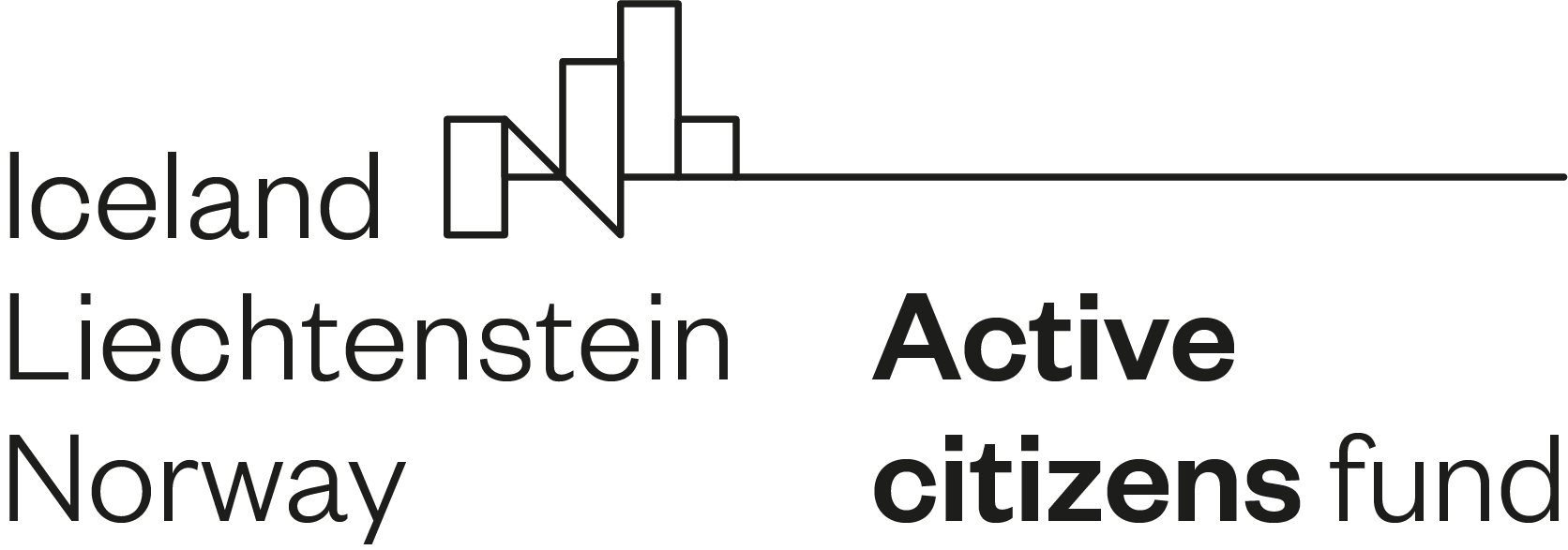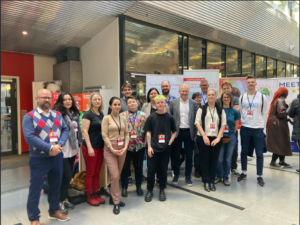
In may 2023, The Norwegian Helsinki Committee (NHC) organised a special trip in southern Norway. LGBTQ+ activists from Latvia, Estonia, Bulgaria, Romania, Malta, Croatia, and Poland joined this journey. The goal: understand the state of LGBTQ+ rights in this conservative area while raising awareness of the situation in Central and Eastern Europe. The trip was organized to coincide with Kristiansand’s own Democracy Week.
The trip marked ten years since Russia outlawed so-called “gay propaganda”. This disturbing law has influenced other countries, shaping laws and norms. For example, Poland has “LGBT-free zones”, Romania attempted a similar propaganda law, and Bulgarian officials have repeatedly used hate speech against LGBTQI+ people.
Setting the stage
The itinerary gave a detailed view of local attitudes and government efforts. The Norwegian Directorate for Children, Youth, and Family Affairs (BUFDIR) met the group first, discussing their research on queer people’s quality of life in Norway and highlighting southern Norway’s distinctiveness. BUFDIR noted that one in ten men in this region feel deeply uncomfortable with homosexuality.
From person to propaganda – the anti-LGBT playbook in focus
A panel discussion at the University of Agder in Kristiansand threw the spotlight on the “Anti-LGBT+ Playbook” – a strategy leveraging rhetoric and disinformation to marginalise LGBTQ+ communities. Panelists, Lilly Dragoeva from Bulgaria, Miko Czerwinski from Poland, Andre Radulescu from Romania, and Åge Bjelland from Norway, shared narratives of shared struggles. Andre encapsulated the essence of their struggle with his response to a query about the LGBTQ+ “agenda”: “To walk in the street with my partner without worrying about being harassed or assaulted”. Insofar as there is a “gay agenda”, that is it.
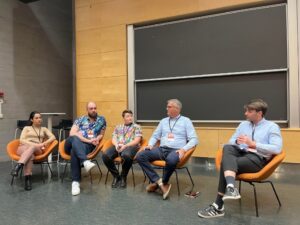
The group also interacted with local political and religious figures, gaining insights into the region’s initiatives and understanding the role of religion in shaping societal attitudes. A meeting with Kristiansand’s Deputy Mayor Erik Rostoft shed light on the municipality’s ongoing inclusivity efforts. As a representative of religious institutions, they met Freddy Berg, the Dean of the Church of Norway for the South of the country, which, through its open and inclusive approach, contrasts with the more conservative stance of smaller regional churches – which are known for their openly anti-LGBT rhetoric.
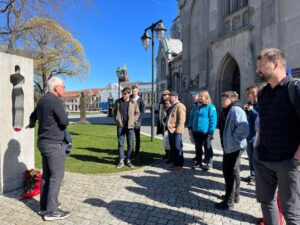
In the course of the week, the group explored the local area, networked, and enjoyed a warm reception at a local Italian restaurant that managed to cater to all the sundry dietary restrictions without compromising on portions or good cheer.
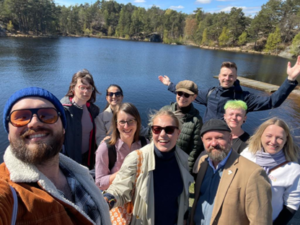
Together for an inclusive Europe
The study trip underscored the parallel struggles faced by LGBTQ+ communities across Europe’s conservative regions. Despite the persistence of old attitudes and prejudices, it highlighted the resilience and determination of activists committed to promoting equality. The journey marked a step toward a future where the LGBTQ+ flag could flutter a little more freely, whether it be in Sofia or Kristiansand.
Interested in bilateral cooperation? Check out our list of open calls here. Looking for a partner? Find one in our database here.
[dss-hidden]
